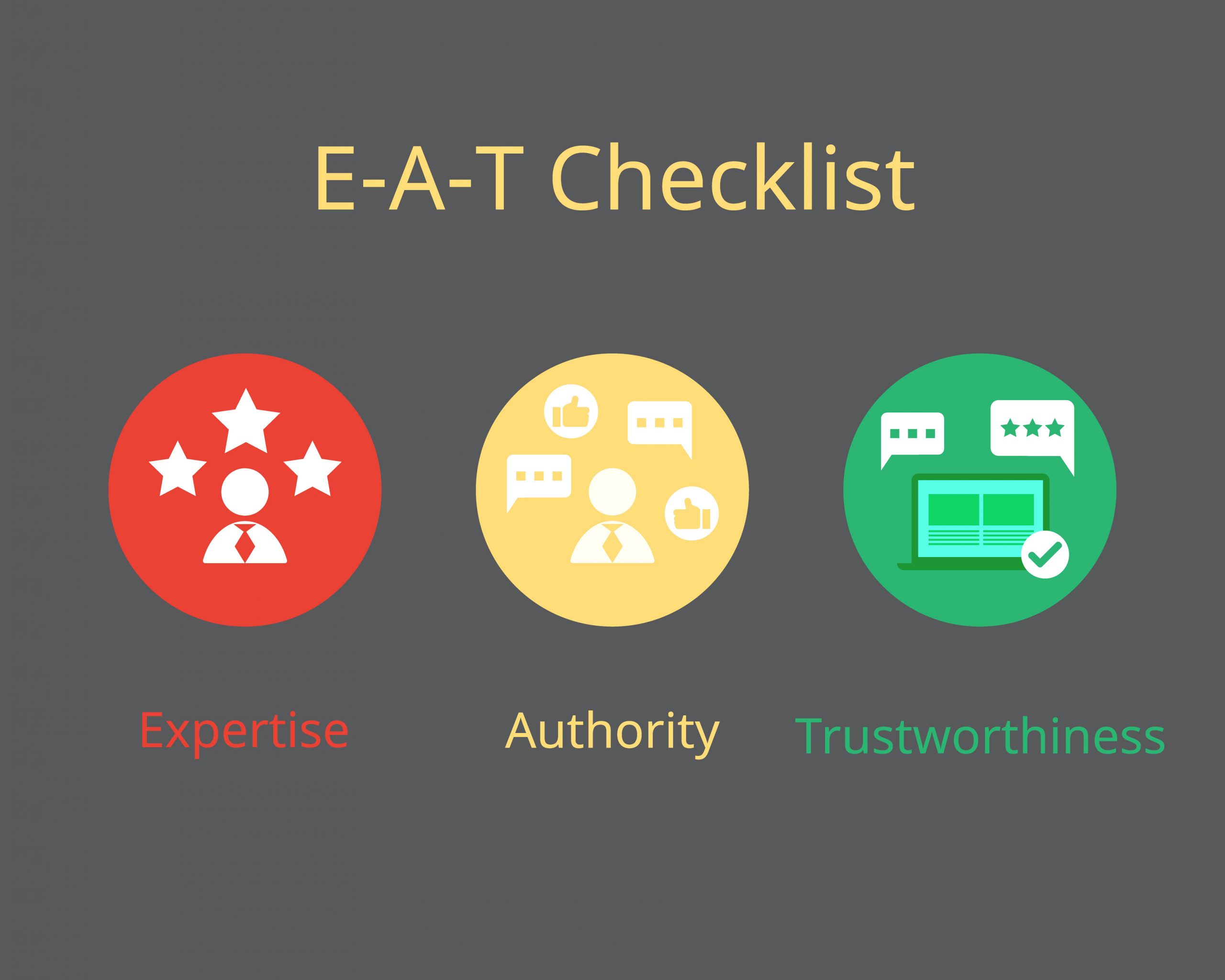
SEO – Is E-A-T a Factor to Worry About?
Positioning in the Google organic search results from your SEO isn’t just about content extent, numerous characteristics matter! According to Google for SEO strategy, the standard for establishing a web page’s overall quality is:
- Details about the website
- Author or publisher of the main content
- Expertise, Authoritativeness, & Trustworthiness (E-A-T)
- Main content quality and amount
- All these, when met, equally gauge a page’s authority and worthiness to rank higher on Google. With that, we must say that E-A-T carries a significant score when it comes to Google rankings.
A Brief Look at E-A-T.
E-A-T is a brief form for Expertise, Authoritativeness, & Trustworthiness. It is discovered in Google’s Search Quality Rater Guidelines which is a total of 167 pages. Normally, E-A-T specifies how the search engine- Google perceives web content and SEO.
With the fact that a lot of content is distributed globally, Google’s focus is to deliver the greatest results for every search intent. And with that said, there is no direct route to establishing content’s value, and so Google uses E-A-T to measure the page’s quality.
So, is E-A-T a Ranking Factor?
E-A-T isn’t a conventional ranking component; though, its indicators are crucial for page ranking. In my perspective, E-A-T highly revolves around ‘content’ which is surely a major subject for any page. When you take a different look, there are numerous other ranking aspects that, when not taken care of, a page may fail to rank spontaneously and most definitely on the first page.
With that, we can say that there is no individual E-A-T score that the search engine (Google) assigns to a site. There are various algorithms that rely on E-A-T.
To sum it all up, E-A-T ‘Expertise, Authoritativeness, & Trustworthiness’ are important ranking signals that assist Google decide a page’s overall content value.
How to Improve EAT of a Page
SEO and writers are extremely focused on E-A-T. If you need to advance, determine or expand an E-A-T score for your pages, then here is what to do to see more success.

Explore Facts & Updates
Many YMYL sites, i.e., health, legal, and economic, experienced a drop in August 2018 when Google brought out the medic update, and that was normally due to a lack of E-A-T. Google’s Quality Rater Guidelines specify that articles must contain factually accurate content.
Websites that cover legal, financial, or medical topics must retain content informed with precise stats. Still, sites that drop in a unique category must keep a check on their content.
Work with Industry’s Best
Specialists and knowledgeable writers are well-educated about the subtleties in a field. If you focus in the medical, manufacturing, legal, or financial field, it’s best to employ a professional writer. Still, sites that fall in the non- YMYL category aren’t spared. It’s required to craft content that will be noticed from a bunch of others distributed on the world wide web frequently.
If you lack experienced writers, then a few considerations like blog posting, link building, and research can help you bridge the gap.
Build Your Profile
Since we are speaking about E-A-T, ‘Expertise, Authoritativeness, & Trustworthiness,’ it’s crucial to work on your professional uniqueness. If you possess expertise in a certain field, then you should let Google know about it. Showcase your qualifications, contact specifics, and get more reviews to command knowledge and cultivate credibility.

Page Load Speed
Page load speed is a vital characteristic today with the detail that Google goes along with a mobile-first indexing approach. With that, sites that load faster have a excellent chance of ranking higher on the search engine when matched with slow-loading sites. Guaranteeing an ideal page speed also helps provide user experience to visitors.
Coordinated data is utilized to markup numerous things like manufactured goods, places, even or any creative work. It is also an ideal SEO practice as it helps search engines understand your content. Schema markup is normally a language ‘code’ for search engines to identify the content. Apart from Google, Bing, Yahoo! and Yandex recognize Schema. Ensure that the data markup is constant with Google guidelines. Add Schema markup to the HTML to improve your outcomes on search results.
Wrap Up
Google has continuously been transparent on how the Search Quality Raters Guidelines are applied. It emphasizes that it conducted over 200, 000 trials with human raters in 2017. The raters assess the value of every portion of content based on its E-A-T. Google has firmly said that E-A-T is extremely considered when evaluating YMYL sites. Though, E-A-T alone can’t affect a site’s rank outcomes, but other algorithms also matter.
With all that, it takes a lot of determination to rank effectively on search results. Big websites do a lot to keep their rank in search results, mainly focusing on SERPs recommendations and user understanding.



